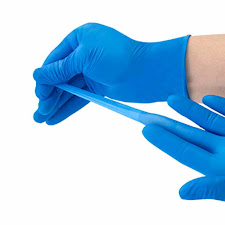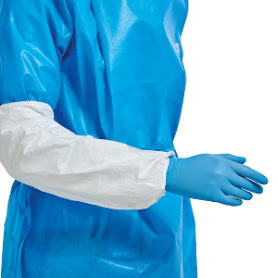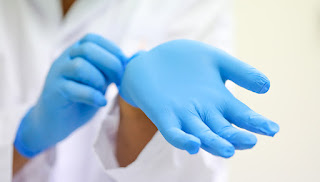Combining Sensitivity and Protection with Latex Gloves
Genuine rubber latex is renewable and obtained from the fluid extracted from the Hevea brasiliensis plant, which makes latex gloves. The gloves are ideal for various uses, including medical care, dining establishments, and scientific research, thanks to their unique blend of safety, ease of use, and tactile sensitivity.
But it's essential to be cautious of a few things when using latex gloves. The outstanding barrier qualities of latex gloves are one of their main advantages. They offer excellent defence against biological and physical dangers, including transmissible diseases and pathogens transmitted by blood. Disposable vinyl gloves Australia flexibility and tight fit ensure little leakage, reducing the chance of coming into contact with potentially toxic chemicals.
Despite their benefits, Powder-free gloves can give some people adverse reactions. Healthcare professionals and anyone who routinely use gloves worry about latex allergy. Latex from natural rubber contains proteins that can cause moderate to severe allergic responses, varying from cutaneous itch and discomfort to respiratory difficulty. Employers and workers must be mindful of latex allergies & offer alternatives to latex-containing gloves to those with sensitivity.
Benefits of Vinyl Glove UseThe following are the primary benefits of using vinyl gloves:
● They offer dining estab
lishments and meals among
the less expensive glove alternatives.
● Extremely resistant to fats and oily substances.
● The anti-static substance increases the gloves' adaptability.
● They're latex-free, making them safe for allergy
sufferers.
● portable and dispensable
● They are lightly crushed, making them simpler to apply.
The disadvantage of vinyl is that it provides minimal protection against chemicals and microbes, but it also makes these types of gloves ideal for handling solvents & non-hazardous items. In addition, vinyl is less form-fitting than latex or nitrile, which limits the wearer's flexibility and increases the likelihood that the glove may catch and rip. These work well in restaurants and other industries where product security is required but only call for a bit of skill or tactile accuracy.
Final Thoughts on Vinyl Gloves
The dentistry and medical fields should not use vinyl gloves. They fit loosely and are more prone to tearing. However, due to the inexpensive cost of these disposable gloves, many individuals continue employing them for quick operations, inspections, and low-risk jobs with reduced pathogen exposure. Gloves made of vinyl are also not intended for handling hazardous chemicals and materials.




Comments
Post a Comment